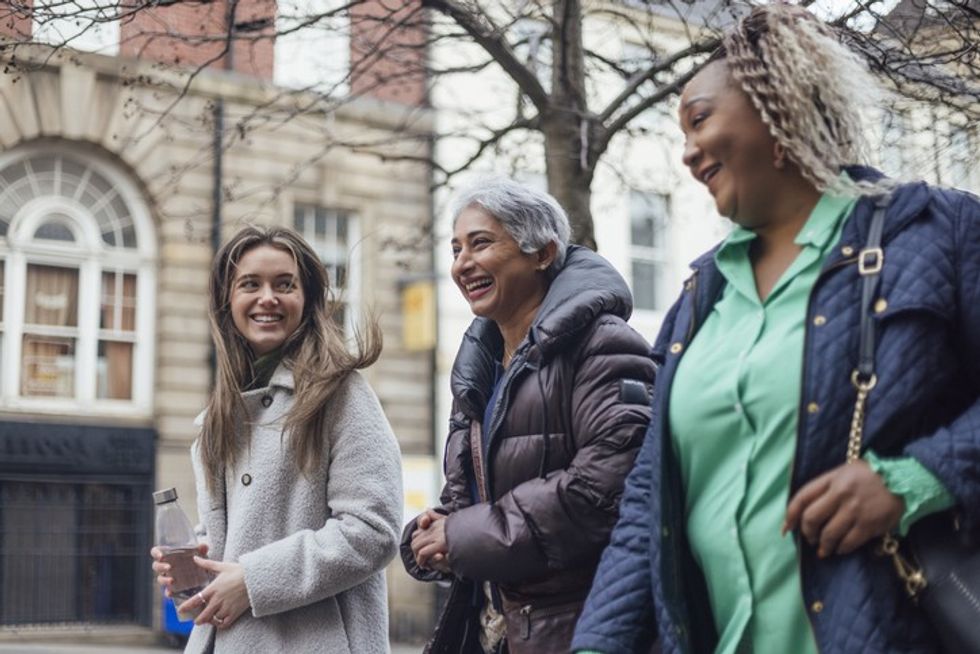by LAUREN CODLING
A LEADING equalities campaigner has said that the coronavirus crisis is an opportunity to “build an environment of equality of opportunity and justice for everyone”.
Lord Simon Woolley, founder of Operation Black Vote (OBV), made the comments on the eve of the publication of the Public Health England (PHE) inquiry into the disproportionate Covid-19 death rate in ethnic minority groups on Tuesday (2).
The report was triggered after statistics showed black, Asian and minority ethnic (BAME) people are more likely than the white British population to die from the Covid-19 infection.
Lord Woolley is among several prominent BAME leaders who have signed an open letter calling for a Covid-19 race equality strategy from the government, to address health and economic consequences of the pandemic.
“I hope our political leaders and community leaders will seize this opportunity, this moment in history, to forge a pathway we can be proud of,” Lord Woolley told Eastern Eye on Monday (1). “Make no doubt about it – historians will look back at these incidents and will look at our response.
“I hope they will be able to say that our response was magnificent and we rebuilt something that had equality, respect and dignity in its DNA.”
The letter also highlighted longstanding inequalities in health, housing and employment. It has been suggested deprivation and socio economic factors could have an impact on the disproportionate death rate among ethnic minorities.
Sunder Katwala, director of independent think tank British Future and one of the signatories of the OBV petition, agreed an action plan was required from government. Heeding the call for a race equality strategy would be a practical way for the government to “combine the rapid public health interventions with deeper institutional changes to tackle the long-term causes”, Katwala said.
He told Eastern Eye on Tuesday: “Just as the NHS itself was the phoenix which arose in peacetime from the flames of the Second World War, such a commitment would provide a meaningful legacy as we mourn those from every ethnic background who have lost their lives in this tragic pandemic”.
Business psychologist and diversity specialist Binna Kandola agreed there was an opportunity to spark change – but warned that good intentions may be forgotten once lockdown is eased and life “resumed as normal”.
“Too often, you find that despite our best intentions we do go back to the ways we are used to doing things and it gets put to the back of our minds,” Kandola told Eastern Eye. “It is an opportunity – whether we take it or not is another issue.”
On wider race inequality in the UK and government response, Conservative peer Lord Jitesh Gadhia highlighted the Race Disparity Audit, commissioned by then-prime minister Theresa May in 2017.
The audit aims to understand how people of different ethnic backgrounds access services and identify racial disparities for the ethnic minority population in the UK.
Although Lord Gadhia called the audit a “noble mission,” he acknowledged findings were not “followed-up as rigorously as they should have been.” He added: “Covid has simply exposed the health and social inequalities which we know already existed.”
Britain has been grappling with the highest death rate relating to the pandemic in western Europe.
London mayor Sadiq Khan announced staff across the Greater London Authority (GLA) would have access to risk assessments as part of measures to help those disproportionately impacted by the Covid-19 disease. These include employees working for Transport for London (TFL), the Metropolitan Police and the London Fire Brigade.
Khan said: “Far from being a great leveller, the coronavirus crisis has exposed the unacceptable major inequalities in our society. We owe it to every Londoner, regardless of background or ethnicity, to be able to live and work in safety.”
His remarks come as there have been protests in the US and also UK, after a 46-year-old black man was killed in police custody in Minneapolis last Monday (25). George Floyd died after a white police officer was seen in a video kneeling on his neck for more than eight minutes, despite Floyd’s pleas that he was unable to breathe.
The incident sparked mass outrage on both sides of the Atlantic, with thousands taking to the streets. Major anti-racism rallies took place in London, Manchester and Cardiff over the weekend.
Lord Woolley said if the UK did not confront “uncomfortable truths” it could lead to a “slippery slope.”
“America is on fire and it is not because of one death – it is on fire because people are angry about the system that allows it to happen,” he said. “All it needs is one incident - the black community are already feeling beleaguered and downtrodden – to spark outrage at palpable injustice.”
There have been demonstrations of solidarity over alleged instances of racism in the UK, too.
Last Saturday (30), the Metropolitan Police faced criticism over a video that showed a policewoman handcuffing a black off-duty ambulance driver in Lewisham. The video showed the officer questioning and detaining the man even as he agreed to a drugs search. Some critics accused the police of “racial profiling”.
In response, a Met Police spokeswoman said officers were acting on “intelligence received regarding drugs activity in the area”, and “a male was detained for the purpose of a search”.
The accusation against the Met followed a recent report showing that black, Asian and minority ethnic people in England were 54 per cent more likely to be penalised under lockdown rules than white people.















 Penguins inhabit a wide range of environments across the Southern HemisphereiStock
Penguins inhabit a wide range of environments across the Southern HemisphereiStock Penguins have evolved to use their flippers to propel themselves through the water iStock
Penguins have evolved to use their flippers to propel themselves through the water iStock Penguins have developed remarkable adaptations to survive the extreme coldiStock
Penguins have developed remarkable adaptations to survive the extreme coldiStock One of the most striking aspects of penguin behaviouriStock
One of the most striking aspects of penguin behaviouriStock Early penguins were quite different from the flightless birds we see todayiStock
Early penguins were quite different from the flightless birds we see todayiStock

 There’s deep healing in the communityiStock
There’s deep healing in the communityiStock
